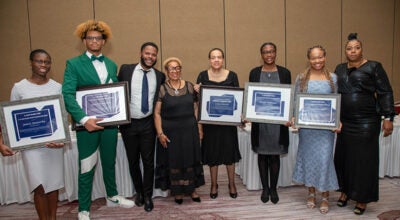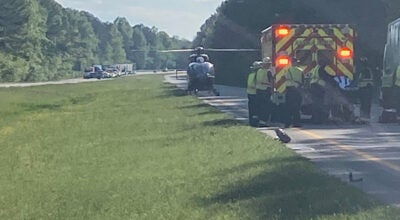SPS committee mulls alternative programs
Published 8:23 pm Tuesday, July 2, 2013
School district officials have revealed more details on efforts to redesign alternative education programs, briefing School Board members on the task.
It’s still early in the process, board members heard at their annual retreat Monday. Officials have met several times on the issue, and a full committee has met once and scheduled its next meeting for July 16, said Jacqueline Chavis, district deputy superintendent.
“The goal is to look at each program we offer, then come back with recommendations to the superintendent,” Chavis said.
Despite the misconception that Turlington Woods School is the only alternative option, a range of settings actually exist, the meeting heard.
They also include middle school alternative, high school alternative, Work Plus, individual student alternative education plans, Daytime Alternative Program, Tidewater Regional Alternative Program, a self-contained alternative program at elementary schools and the High School Diploma Program.
Many alternative programs have been hit by budget cuts, and dissatisfaction with their effectiveness has culminated in a call for change by the Community Action Coalition.
“It doesn’t need to be just an adjustment, there needs to be a complete, open and honest look at whether (the programs) are successful or not,” said Linda Bouchard, one of two School Board members on the committee with Judith Brooks-Buck, during a phone interview.
“My feeling is some of them don’t appear to be successful, and the statistics that I have seen so far don’t tell you anything.”
While Chavis told Monday’s meeting no data is available for some programs, board members were shown some statistics. They revealed sharp reductions in the number of courses high school alternative education students are enrolling in, and an increase in 2012-2013 September enrollments in Work Plus while June enrollments were steady.
Almost 67 percent of Work Plus students who took the GED in 2012-2012 were successful, against only 20 percent in 2011-2012, and recidivism at Turlington Woods in the same period fell slightly, from 34 percent to 27 percent.
But the data needed for a thorough evaluation is lacking, according to Cory McCray, co-chair of the committee and executive director of the Pruden Center, a setting for some of the programs.
The first committee meeting involved a lot of conversation, he said, adding that developing a mission is on the agenda for later this month.
Defining success is another objective. “How do we determine success for that student if he or she doesn’t get their GED by the end of the year?” he asked. “The committee will have that conversation as well.”
Bouchard, involved in assigning students to alternative settings with her service on the Pupil-Personnel Committee, explained the problem as helping students be successful while finding a place for those with discipline problems who cannot — at least for a period of time — return to the regular classroom.
“Turlington Woods, for example … doesn’t have one student assigned to that school because he or she is not being successful in a normal setting,” she said. “Students are only assigned there for behavioral reasons.
“Even though it’s difficult to separate the two, I believe the behavioral problems of most kids stem from whatever reason they are not being successful in the classroom.”
Bouchard says she would like to see a charter school that parents or guardians would apply for and that is run with more community input.
“Then the problem is what to do with discipline problems,” she said. “I believe, personally, we should house discipline-problem kids in mobile units at every school, or some of the schools.
“I believe they should be able to see the school that they’re not allowed to go to because they can’t behave in the classroom.”






